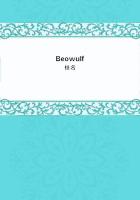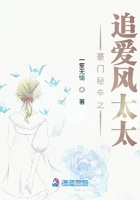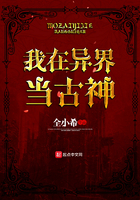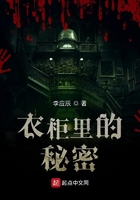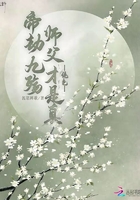Of course you, who see above that this is the eleventh (and last)chapter, know very well that the day of which this chapter tells must be the last on which Cyril, Anthea, Robert, and Jane will have a chance of getting anything out of the Psammead, or Sand-fairy.
But the children themselves did not know this. They were full of rosy visions, and, whereas on other days they had often found it extremely difficult to think of anything really nice to wish for, their brains were now full of the most beautiful and sensible ideas. 'This,' as Jane remarked afterwards, 'is always the way.'
Everyone was up extra early that morning, and these plans were hopefully discussed in the garden before breakfast. The old idea of one hundred pounds in modern florins was still first favourite, but there were others that ran it close - the chief of these being the 'pony each' idea. This had a great advantage. You could wish for a pony each during the morning, ride it all day, have it vanish at sunset, and wish it back again next day. Which would be an economy of litter and stabling. But at breakfast two things happened. First, there was a letter from mother. Granny was better, and mother and father hoped to be home that very afternoon.
A cheer arose. And of course this news at once scattered all the before-breakfast wish-ideas. For everyone saw quite plainly that the wish for the day must be something to please mother and not to please themselves.
'I wonder what she WOULD like,' pondered Cyril.
'She'd like us all to be good,' said Jane primly.
'Yes - but that's so dull for us,' Cyril rejoined; 'and, besides, I should hope we could be that without sand-fairies to help us.
No; it must be something splendid, that we couldn't possibly get without wishing for.'
'Look out,' said Anthea in a warning voice; 'don't forget yesterday. Remember, we get our wishes now just wherever we happen to be when we say "I wish". Don't let's let ourselves in for anything silly - to-day of all days.'
'All right,' said Cyril. 'You needn't jaw.' just then Martha came in with a jug full of hot water for the teapot - and a face full of importance for the children.
'A blessing we're all alive to eat our breakfasses!' she said darkly.
'Why, whatever's happened?' everybody asked.
'Oh, nothing,' said Martha, 'only it seems nobody's safe from being murdered in their beds nowadays.'
'Why,' said Jane as an agreeable thrill of horror ran down her back and legs and out at her toes, 'has anyone been murdered in their beds?'
'Well - not exactly,' said Martha; 'but they might just as well.
There's been burglars over at Peasmarsh Place - Beale's just told me - and they've took every single one of Lady Chittenden's diamonds and jewels and things, and she's a-goin' out of one fainting fit into another, with hardly time to say "Oh, my diamonds!" in between. And Lord Chittenden's away in London.'
'Lady Chittenden,' said Anthea; 'we've seen her. She wears a red-and-white dress, and she has no children of her own and can't abide other folkses'.'
'That's her,' said Martha. 'Well, she's put all her trust in riches, and you see how she's served. They say the diamonds and things was worth thousands of thousands of pounds. There was a necklace and a river - whatever that is - and no end of bracelets;and a tarrer and ever so many rings. But there, I mustn't stand talking and all the place to clean down afore your ma comes home.'
'I don't see why she should ever have had such lots of diamonds,' said Anthea when Martha had Bounced off. 'She was rather a nasty lady, I thought. And mother hasn't any diamonds, and hardly any jewels - the topaz necklace, and the sapphire ring daddy gave her when they were engaged, and the garnet star, and the little pearl brooch with great-grandpapa's hair in it - that's about all.'
'When I'm grown up I'll buy mother no end of diamonds,' said Robert, 'if she wants them. I shall make so much money exploring in Africa I shan't know what to do with it.'
'Wouldn't it be jolly,' said Jane dreamily, 'if mother could find all those lovely things, necklaces and rivers of diamonds and tarrers?'
'TI--ARAS,' said Cyril.
'Ti--aras, then - and rings and everything in her room when she came home? I wish she would.' The others gazed at her in horror.
'Well, she WILL,' said Robert; 'you've wished, my good Jane - and our only chance now is to find the Psammead, and if it's in a good temper it MAY take back the wish and give us another. If not -well - goodness knows what we're in for! - the police, of course, and - Don't cry, silly! We'll stand by you. Father says we need never be afraid if we don't do anything wrong and always speak the truth.'
But Cyril and Anthea exchanged gloomy glances. They remembered how convincing the truth about the Psammead had been once before when told to the police.
It was a day of misfortunes. Of course the Psammead could not be found. Nor the jewels, though every one Of the children searched their mother's room again and again.
'Of course,' Robert said, 'WE couldn't find them. It'll be mother who'll do that. Perhaps she'll think they've been in the house for years and years, and never know they are the stolen ones at all.'
'Oh yes!' Cyril was very scornful; 'then mother will be a receiver of stolen goods, and you know jolly well what THAT'S worse than.'
Another and exhaustive search of the sand-pit failed to reveal the Psammead, so the children went back to the house slowly and sadly.
'I don't care,' said Anthea stoutly, 'we'll tell mother the truth, and she'll give back the jewels - and make everything all right.'
'Do you think so?' said Cyril slowly. 'Do you think She'll believe us? Could anyone believe about a Sammyadd unless they'd seen it?
She'll think we're pretending. Or else she'll think we're raving mad, and then we shall be sent to Bedlam. How would you like it?'



